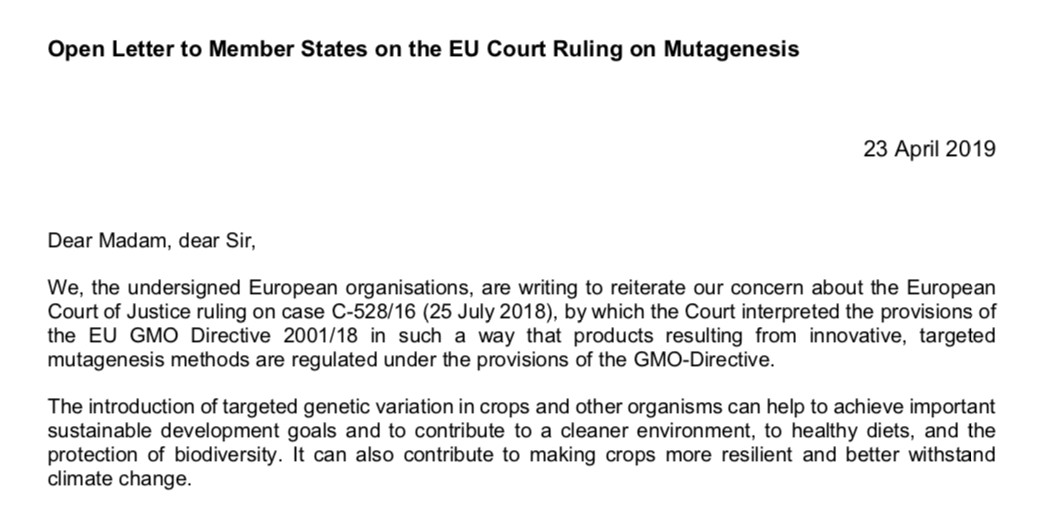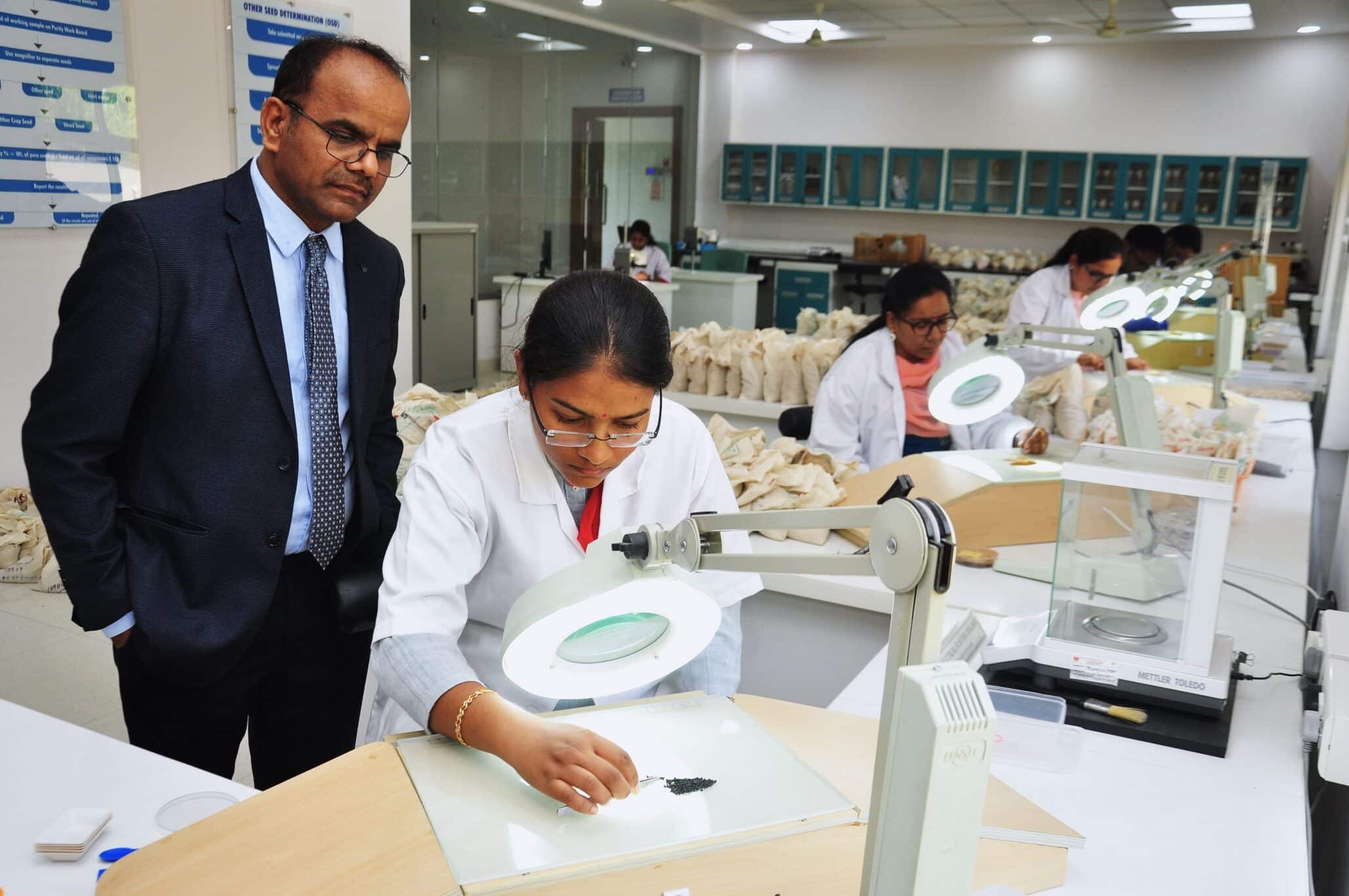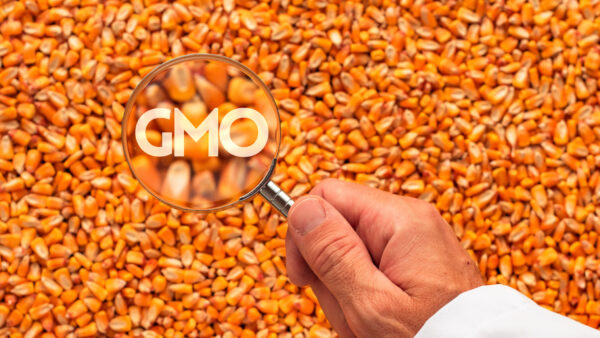22 European business organisations jointly call upon member states and the European Commission to initiate a legislative change that provides innovation-friendly rules for plant breeding. The goal is to obtain practical and science-based rules for products resulting from the latest mutagenesis methods that foster public confidence and trust. This would unlock great potential for a high-performing, innovative and diversified European bio-based solutions in sectors such as plant and animal breeding, agriculture, animal feed, food, healthcare and energy thereby contributing to Europe’s resilience to climate change, and to benefits for consumers, patients and the environment.
The 22 signatories reiterated their concern about the European Court of Justice ruling on case C-528/16 (25 July 2018), by which the Court interpreted the provisions of the EU GMO Directive 2001/18 in such a way that products resulting from innovative, targeted mutagenesis methods are regulated under the provisions of the GMO-Directive.
The introduction of targeted genetic variation in crops and other organisms can help to achieve important sustainable development goals and to contribute to a cleaner environment, to healthy diets, and the protection of biodiversity. It can also contribute to making crops more resilient and better withstand climate change.
The costly and lengthy EU approval process for the products resulting from targeted mutagenesis, combined with potential national cultivation opt-outs under Directive 2001/18, will effectively deprive European farmers and consumers from the benefits of these products.
The ruling is also difficult to implement and virtually impossible to enforce, given that many gene-edited products may be indistinguishable from products changed by natural processes or with conventional breeding techniques, as reconfirmed by the report of the Joint research Centre “Detection of food and feed plant products obtained by new mutagenesis techniques”, published on 26 March 2019.
The 22 organizations are in full agreement with scientists, stakeholders and EU trade partners, that it has become urgent for the EU to adapt its legislation to reflect and welcome technical progress and align it with legislation in other parts of the world. They therefore call upon member states and the EU Commission to adopt a regulatory approach that ensures pro-innovation rules.
Products resulting from the latest mutagenesis methods should not be subject to Directive 2001/18 requirements and related regulations if they could also have been obtained through conventional methods or result from spontaneous processes in nature.
- Read the open letter signed by the 22 business organisations (pdf)
Source: ESA













